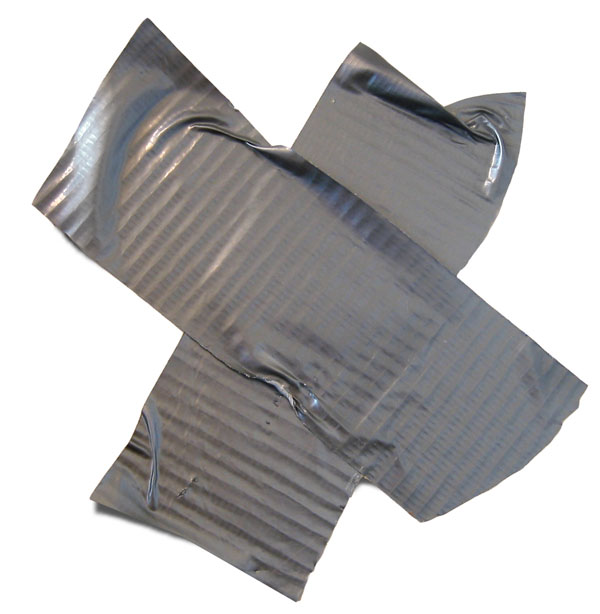Dear Control Your Cash:
We came into an inheritance of about $130,000. We paid off all our credit cards and deposited $100,000 in two credit union accounts that each pay 3% on deposits. The balance sits in a non-interest-bearing regular deposit account. Our income takes care of all bills, with a modest margin for savings and/or the occasional repair, travel, etc., without requiring commission income from my job. That situation should be stable for the next 5-10 years (famous last words). In this economic environment, where would you put the cash sitting in the credit union account?
Abigail
Phenix City, Alabama
Dear Abigail:
How much is sitting in the regular deposit account?
Control Your Cash
(no response)
Dear Abigail (continued):
Okay, fine. Can’t be more than $30,000.
Put 3-6 months of expenses in the best savings account you can find. Try ING. You can buy a CD, but you can probably get an interest-bearing account that pays a similar rate without locking up the money.
Let’s take a look at Bankrate. Right now, the best 3-month CD rate we can find on there, among banks that don’t require a minimum, is Ally’s .39%. Ally’s own money market and savings accounts go as high as .84%, again with no balance required.
Put the rest in TIPS – treasury inflation-protected securities – and index funds. Vanguard is great for index funds because they keep their fees low and have lots of choices. Here are a few that might work, in descending order of how highly we regard them:
REIT index fund
Total stock market index fund
Total bond market index fund
The REIT fund invests in real estate investment trusts only. Buy in, and you’re holding pieces of companies that own pieces of buildings. $3000 gets you into this fund that has a low expense ratio and that pays quarterly dividends (which totaled 44¢ a share over the past year.)
One positive to the REIT fund – or negative, if you have different objectives – is that it’s got far fewer components than your standard stock fund. The REIT fund has only 112 components, a dozen of which comprise half its value. You’d expect this fund to have relatively few components, since there are far fewer REITs for a REIT fund to be composed of than there are stocks that could make up a stock fund.
The stock fund, on the other hand, has a little of everything. 3319 components, to be precise. When Vanguard says the fund tracks the entire market, they mean it. The fund’s top 10 holdings make up only ⅙ of its value, and those holdings are as big relative to the fund as they are to American commerce itself: in order, those stocks are:
| Exxon Mobil Corp. | 58,095,543 | $4,924,178,225 |
| Apple Inc. | 11,077,447 | $4,486,366,035 |
| International Business Machines Corp. | 14,269,978 | $2,623,963,555 |
| Chevron Corp. | 23,932,734 | $2,546,442,898 |
| Microsoft Corp. | 90,097,291 | $2,338,925,674 |
| General Electric Co. | 126,658,602 | $2,268,455,562 |
| Procter & Gamble Co. | 32,835,015 | $2,190,423,851 |
| Johnson & Johnson | 32,743,485 | $2,147,317,746 |
| AT&T Inc. | 70,807,116 | $2,141,207,188 |
| Pfizer Inc. | 93,224,076 | $2,017,369,005 |
| Google Inc. Class A | 3,037,566 | $1,961,963,879 |
| Coca-Cola Co. | 24,691,491 | $1,727,663,625 |
| Wells Fargo & Co. | 59,932,087 | $1,651,728,318 |
| Philip Morris International Inc. | 20,987,803 | $1,647,122,779 |
| JPMorgan Chase & Co. | 46,588,007 | $1,549,051,233 |
| Intel Corp. | 62,741,843 | $1,521,489,693 |
| Merck & Co. Inc. | 36,811,418 | $1,387,790,459 |
| Verizon Communications Inc. | 33,826,667 | $1,357,125,880 |
Finally, the bond fund. It deals exclusively in “investment-grade” bonds, 70% government, the rest corporate. It holds pieces of 4,301 bonds, most of it Fannie Mae and Freddie Mac. (Which, curiously, Vanguard regards as government bonds. Even though Fannie and Freddie are officially private enterprises. We’ve talked about this before. Last month in, fact.)
Either way, you’re doing fine. Look at the returns on even the most conservative choice here, and compare it to what you were making in credit card interest payments.
We’ll say it again – a huge part of building wealth is not destroying wealth. There are a million places to make the analogy, but constructing a skyscraper is a hell of a lot easier if you aren’t setting fire to the building’s foundation every night.
Dear Control Your Cash:
Tax time is coming up. I get my taxes done at Jackson Hewitt, in the mall, because addition and subtraction are hard. And don’t get me started on multiplication and division. Besides, I’m more of a left-brainer. Numbers are soulless and have no place in a creative person’s life. Did I mention that I’m an artist?
Anyhow, I’m expecting about a $500 refund this year. (Yes!!)
So should I get a refund anticipation loan? The tax preparer told me that I’d get the money immediately, instead of having to wait a few weeks for my refund like I normally do. It’s my money, I shouldn’t have to wait for it, right? So unfair! What do you think?
Erika
Scottsdale, Arizona
Dear Erika:
Thanks. A little comedy always livens up the mailbag. Of course you shouldn’t have to wait for your money, which makes us wonder why you authorized the federal government to confiscate it from you in the first place, only to return it to you with zero interest months later. What Jackson Hewitt squeezes out of you is yours and their business, however. Read this, if you can do it without drooling on your keyboard.
Got a question for the CYC mailbag? Email info@ our URL.




